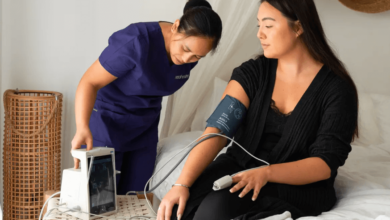Hiring the Right Occupational Therapist: Essential Qualities to Consider

Occupational therapy (OT) is a vital field that focuses on helping individuals achieve independence and improve their quality of life following injuries, illnesses, or surgeries. Many types of facilities hire occupational therapists, from hospitals to nursing homes. If you’re responsible for finding your facility’s next exceptional OT, read on to find out what qualities to consider.
Good Communication Skills
Not everyone applying for open occupational therapist positions has the same level of communication skills, and this is one area that’s essential for occupational therapists. Professionals in this field are often placed in difficult situations that require careful interaction with patients, family members, and healthcare providers alike. Occupational therapists should possess excellent communication skills to effectively explain medical conditions and therapeutic plans to patients in clear, easy-to-understand language.
Problem-Solving Abilities
Every OT case is a little different. Occupational therapists often need to think outside the box and employ strong problem-solving skills to develop effective therapeutic plans. They’ll need to be able to assess patients’ capabilities, identify the challenges in their lives, and create effective solutions to overcome those challenges. The process requires a lot of creativity.
See also: Pond Drum Filters: The Ultimate Solution for Clear, Healthy Ponds
Compassion and Empathy
By definition, OT patients are struggling with acute or chronic conditions such as โรคเริม that impact their lives negatively. They should always be treated with empathy and compassion. Emotional intelligence is thus an essential trait in an occupational therapist, who needs to be able to understand what the patients are experiencing internally, validate those experiences, and provide support in order to form connections.
Active Listening Skills
Active listening is another essential skill for occupational therapists. It involves not just listening to patients, but also taking the time and putting in the work to process their words, sentiments, and unspoken communication. Active listening allows occupational therapists to accurately assess patients’ conditions so they can come up with effective treatment plans. It also facilitates a deeper level of connection and aids in collaborative decision-making.
General Adaptability
Occupational therapists can’t take a one-size-fits-all approach to treating patients because every person has a different set of needs and capabilities. Professionals in the OT field need to be flexible in their approaches and remain adaptable, modifying exercises and adjusting their therapeutic techniques to maximize effectiveness. Occupational therapists also need to be able to adapt to different situations and circumstances since they’ll be working with diverse patient populations.
Effective Collaboration
Because occupational therapists work within multidisciplinary healthcare teams, they need to be able to collaborate effectively not just with patients but also with other providers. Effective collaboration requires sharing insight, discussing progress, and adjusting treatment plans as needed in response to shared decision-making processes. Taking a collaborative approach to patient care is the best way to generate effective treatment outcomes and improve patient satisfaction rates, so don’t underestimate the importance of this skill.
Clinical Reasoning
We’ve already discussed the need for creative thinking and problem-solving abilities. Clinical reasoning employs similar skills. It involves making decisions based on not just theoretical knowledge but also practical experience. This framework should guide the OT process, so it’s essential that any occupational therapist accepted for an open position has strong clinical reasoning skills.
Find the Best Person for the Job
Take the time to interview candidates for open occupational therapist positions carefully. Choosing the best candidate for the job is crucial if you want to enhance patient outcomes and ensure that the entire healthcare team can collaborate effectively to deliver excellent care.





